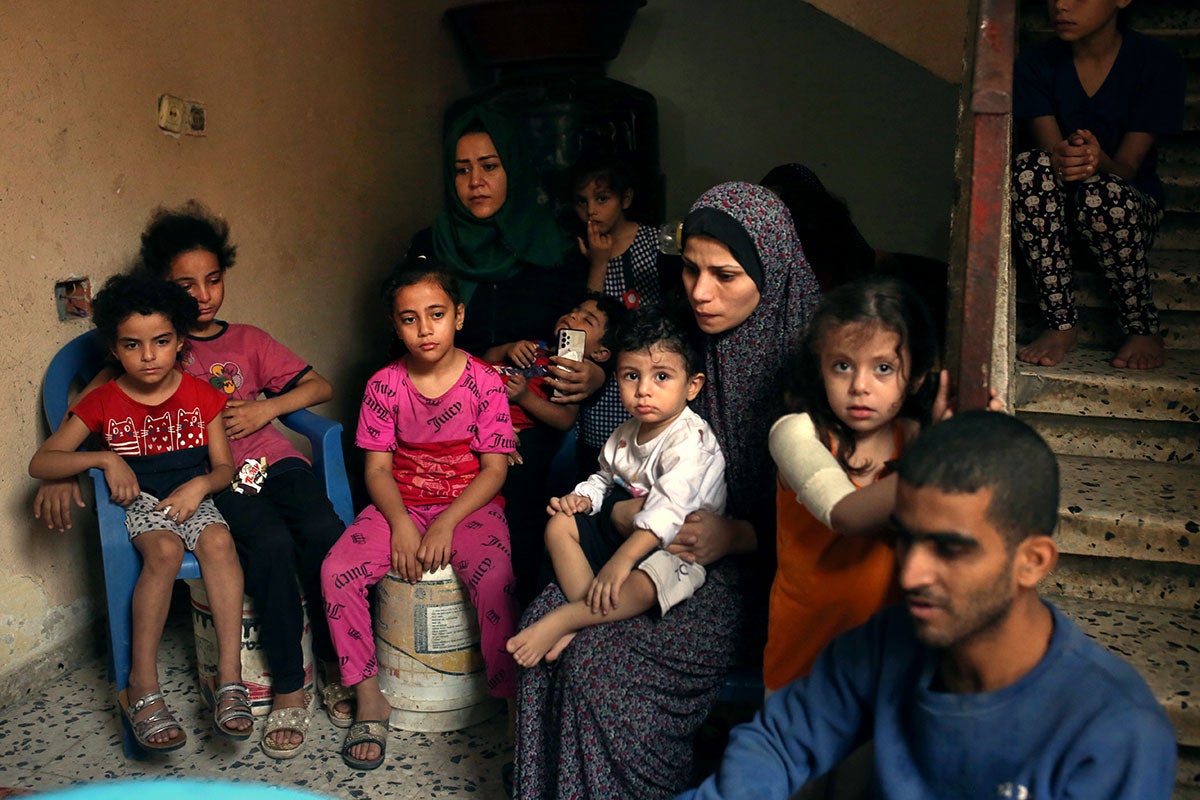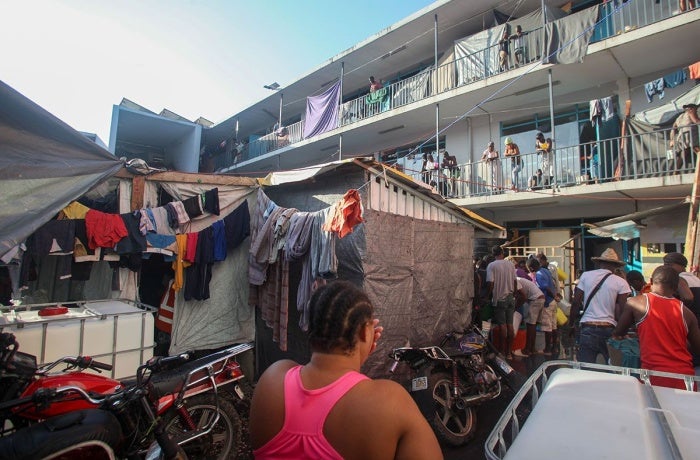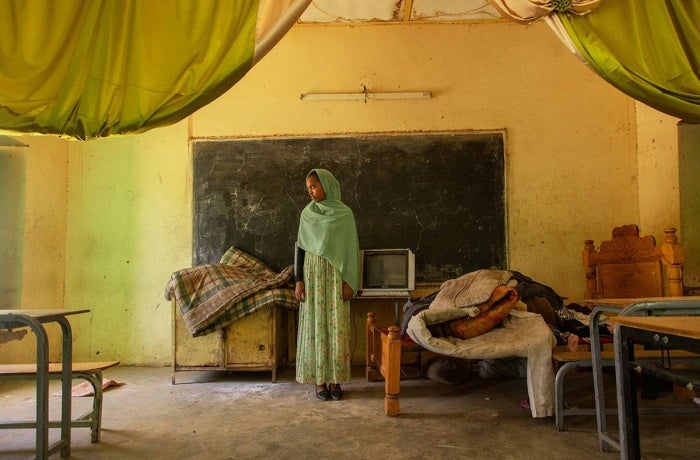Six months into the war on Gaza, over 10,000 women have been killed, among them an estimated 6,000 mothers, leaving 19,000 children orphaned
More than one million Palestinian women and girls in Gaza have almost no access to food or safe water, with disease growing amidst inhumane living conditions.
New York/Cairo — Today, UN Women launches its latest Gender Alert on Gaza. Six months into the war, 10,000 Palestinian women in Gaza have been killed, among them an estimated 6,000 mothers, leaving 19,000 children orphaned. Women who have survived Israeli bombardment and ground operations have been displaced, widowed, and facing starvation. This devastating differentiated impact continues to make the war on Gaza also a war on women.

The series of gender alerts produced by UN Women on Gaza provides a detailed analysis of the reality of women’s and girls’ lives in the Gaza Strip, documenting abhorrent living conditions. The publication launched today titled, Scarcity and Fear, focuses on the lack of access to water, sanitation, and hygiene (WASH) services, which are vital to women's health, dignity, safety, and privacy.
More than one million Palestinian women and girls in Gaza are facing catastrophic hunger, with almost no access to food, safe drinking water, functioning toilets or running water, creating life-threatening risks. Access to clean water is especially critical for breastfeeding mothers and pregnant women, who have higher daily water and caloric intake requirements. It is also essential for the ability of women and girls to manage their menstrual hygiene with dignity and safety. UN Women estimates that 10 million disposable menstrual pads or four million reusable sanitary pads are required each month to cover the needs of 690,000 women and girls in Gaza.
“In Gaza, we [women] cannot meet our simplest and most basic needs: eating well, drinking safe water, accessing a toilet, having (sanitary) pads, taking a shower, … changing our clothes…” – Gazan woman.
“More than ten thousand women have been killed so far, of which an estimated six thousand are mothers. Women who have survived the bombing are suffering daily starvation, sickness, and constant fear. The war in Gaza is no doubt a war on women, who are paying a heavy price for a war not of their making”, said Susanne Mikhail, Regional Director of UN Women in the Arab States in a media briefing in Geneva.
Only peace can end this suffering. UN Women joins the calls for the implementation of the United Nations Security Council resolution 2728 (2024) adopted on 25 March 2024, demanding an immediate ceasefire in Gaza, the release of all hostages, and safe and unimpeded access for humanitarian aid.
UN Women is working with Palestinian women’s organizations, and partners within the humanitarian systems/spaces to advocate for the rights and needs of women and girls, and to deliver urgently needed assistance. In Gaza, UN Women has reached almost 100,000 women and their families with food, blankets, winter clothes, soap, diapers, and sanitary kits. Tens of thousands more items have been at the border crossings for weeks. This is only a fraction of what women and girls in Gaza need. As set out in the Agreed Conclusions of the recently held Commission on the Status of Women (CSW68), women and girls must be at the heart of our collective humanitarian response.









